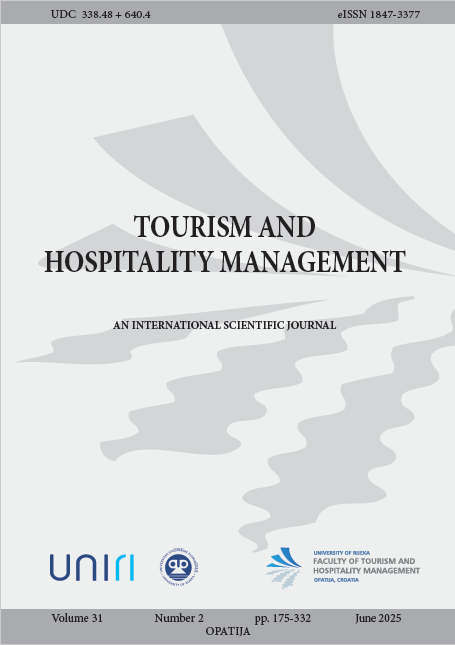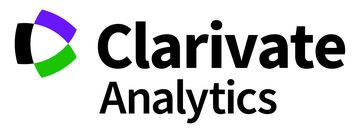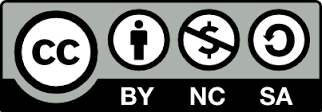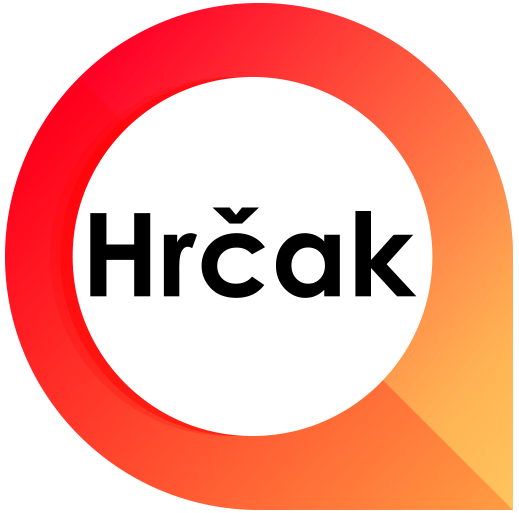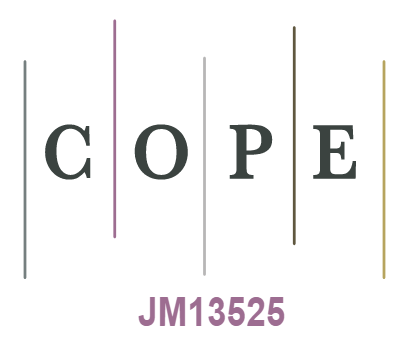Open Access Policy
The Tourism and Hospitality Management journal is freely available online. Our open access policy is aimed to facilitate the exchange of knowledge. Authors are required to agree with this open access policy which enables unrestricted access.
The Tourism and Hospitality Management journal is an open access journal, distributed under the terms and conditions of the Creative Commons Attribution - Non Commercial – Share Alike 4.0 International license. (CC BY-NC-SA 4.). According to this, you are free to reproduce and share the licensed material, in whole or in part, for noncommercial purposes only; and produce, reproduce, and share adapted material for noncommercial purposes only. You can download the legal code for this licence at: https://creativecommons.org/licenses/by-nc-sa/4.0/
The Tourism and Hospitality Management journal is an open access journal, confirming fully to the Budapest Open Access Initiative (BOAI). It has adopted the BOAI policy of “free availability on the public internet, permitting any users to read, download, copy, distribute, print, search, or link to the full texts of these articles, crawl them for indexing, pass them as data to software, or use them for any other lawful purpose, without financial, legal, or technical barriers other than those inseparable from gaining access to the internet itself. The only constraint on reproduction and distribution, and the only role for copyright in this domain, should be to give authors control over the integrity of their work and the right to be properly acknowledged and cited”. http://www.budapestopenaccessinitiative.org/read
Open access is available through the Hrčak platform for Croatian Open Access journals (http://hrcak.srce.hr/thm) and journal web site (http://thm.fthm.hr).
Publication Frequency
The Tourism and Hospitality Management has been published continuously since 1995. The journal is published semi-annually, in June and December.
Peer Review Process
Articles submitted for possible publication are subjected to a double-blind peer review process.
Articles are first reviewed by editors. The editors reserve the right to return improperly formatted manuscripts to the authors, without peer review. Submissions to the THM journal authored by the editor or the employees of Faculty of Tourism and Hospitality Management (FTHM) or the editorial board and advisory board members will be handled in such way as to ensure unbiased reviews. Submissions authored by the editors or employees of FTHM are considered by an appropriate advisory board member, whereby the advisory board member also chooses two reviewers, not employees of the FTHM.
Articles that are found suitable for review are then subject to two experts in the field of the paper, by its editorial board or by other anonymous international reviewers. Referees of a paper are unknown to each other.
Referees are asked to classify papers as original scientific papers, preliminary communications, reviews and technical papers. Referees’ evaluations usually include an explicit recommendation of what to do with the manuscript, with the classification (to accept it as it is), to make a major revision, minor revision or reject it. If needed, the manuscript is sent to third, or even fourth reviewer.
Referees’ comments are seen by the author. The review process is usually completed within two or three months. Accepted articles are published within six to eight months. The review process is made using ScholarOne Manuscripts, the online submission and peer review system. Access is available at: https://mc04.manuscriptcentral.com/thm
Reviewers should carefully follow the guidelines for reviewers.
Fees
The Tourism and Hospitality Management journal does not charge article submission, processing or publication fees.
Copyright Policy
The Tourism and Hospitality Management journal uses the Creative Commons copyright license policy CC BY-NC-SA 4.
Articles submitted to the journal should not have been published before in their current or significantly similar form, or be under consideration for publication with another journal. Authors submitting articles for publication warrant that the work is not an infringement of any existing copyright and will indemnify the publisher against any breach of such warranty. Authors must obtain all permissions from copyright owners for 3rd party material (e.g. quotations, illustrations, tables, etc.). For ease of dissemination and to ensure proper policing of use, papers and contributions become the legal copyright of the publisher of the journal Tourism and Hospitality Management.
In order to ensure the protection of papers published in the journal, authors must fill and sign the ![]() copyright agreement, to declare that he/she is the sole author or co-author of the paper. With the agreement, the author assigns to the Faculty of Tourism and Hospitality Management the copyright in the specified manuscript and any accompanying tables, illustrations, data and any other supplementary information intended for publication in all forms and all media throughout the world, in all languages, for the full term of copyright, to take effect if and when the article is accepted for publication.
copyright agreement, to declare that he/she is the sole author or co-author of the paper. With the agreement, the author assigns to the Faculty of Tourism and Hospitality Management the copyright in the specified manuscript and any accompanying tables, illustrations, data and any other supplementary information intended for publication in all forms and all media throughout the world, in all languages, for the full term of copyright, to take effect if and when the article is accepted for publication.
Tourism and Hospitality Management journal fully support and encourage authors self- archiving of all content. It is a RoMEO blue journal, what means that authors must use the publisher’s PDF and the self-archived version should include a link to publisher’s website.
Plagiarism
By submitting the manuscript, the authors declare that the text is their original work, does not contain any plagiarism and has not been published in or submitted to any other journal.
Manuscripts submitted to the journal should be original contributions and should not be under consideration for any other publication at the same time. Authors declare that the manuscript is their original work and does not contain any plagiarism. They need to ensure that all of the authors contributed to the scientific results and findings in the sufficient extent to be regarded for co-authorship. Guest authorship without the actual involvement of the co-author and Ghost authorship without listing of the real author are considered as unethical behaviour.
In order to detect plagiarism, all submitted papers are checked using Crossref Similarity Check (iThenticate). If plagiarism is detected, the paper is rejected for publication.
Ethical complaints
The editors should take reasonably responsive measures when ethical complaints have been presented concerning a submitted manuscript or published paper, in conjunction with the publishers' code of ethics. Such measures will generally include contacting the authors of the manuscript or published paper and giving due consideration to the respective complaint or claims made, but may also include further communications to the relevant institutions and research bodies, and if the complaint is upheld, the publication of a correction, retraction, expression of concern, or other note, as may be relevant. Every reported act of unethical publishing behaviour must be considered, even if it is discovered years after publication.
Retraction Policy
If errors are found that are so significant that the article cannot remain in the journal, the article will be removed and replaced with a note stating the reason of the retraction.
If plagiarism is found, a whole article will be removed from the journal and replaced with a note indicating the authors´ names and description of the plagiarism. Authors and their institutions will be notified.
Digital Preservation
The Tourism and Hospitality Management journal is digitally preserved as “Archival Versions” by EBSCO and at the journal web site (past issues).
Publication Ethics and Malpractice Statement
For the Publication Ethics and Malpractice Statement please click here.
Journal policies will be revised if required, considering the new findings in the field of journal editing and publishing and the effects of journal policies on authors’ and reviewers’ behaviour.



